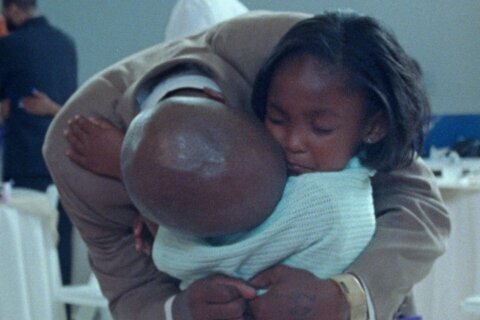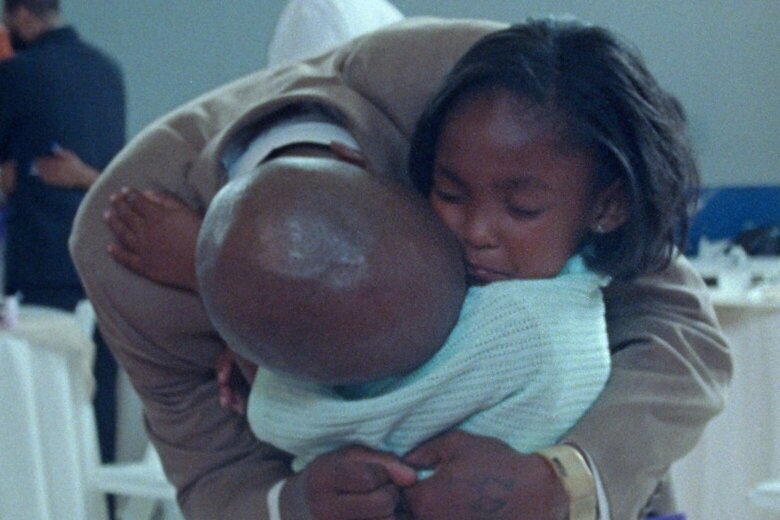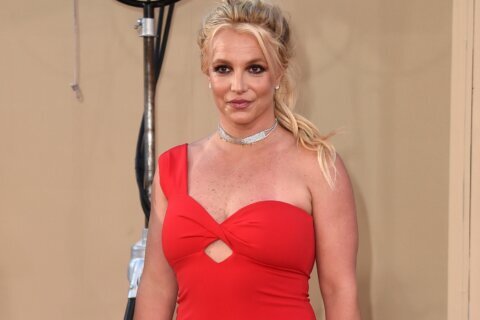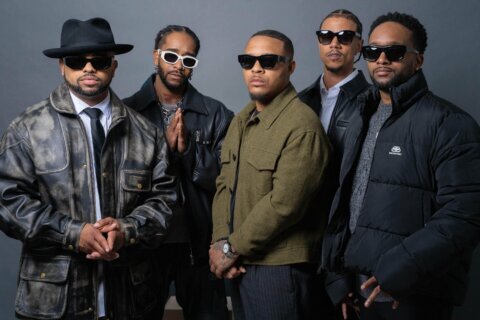It won the Audience Award for U.S. Documentary at this year’s Sundance Film Festival.

This week, “Daughters” premieres on Netflix chronicling an emotional daddy-daughter dance at the D.C. Jail.
WTOP caught up with the film’s co-directors Natalie Rae and Angela Patton, who created the dance at the suggestion of young girls in her non-profit organization Girls For a Change in Richmond, Virginia.
“I run a program that advances opportunities for Black girls,” Patton told WTOP. “The girls wanted to do a social change program to change people’s perspectives and stereotypes of Black men, specifically as they showed up as fathers in their lives. As they planned this special dance to celebrate their fathers, they discovered their friend had a father that was incarcerated and they all felt it was unfair that she was unable to participate in the dance.”
So, the girls wrote a letter to the sheriff of Richmond asking if he could help facilitate a special daddy-daughter dance for girls whose fathers were incarcerated. Thankfully, their agreplea was heard.
“He said yes to this amazing experience,” Patton said. “It grew to D.C. after I did a TED Talk about this particular dance and a lot of people started to reach out to me. … When other filmmakers reached out to me, they really wanted to tell the jail story … but they never talked about the girls being the forefront. … Natalie emailed me and asked if I would meet with her about a film that would center the girls. That really sparked my interest.”
Thus, Patton and Rae met up in Virginia and decided to co-direct what would become “Daughters.”
“I met Angela in Richmond and we did preliminary interviews with Sheriff C.T. Woody at the Richmond Justice Center,” Rae said. “We got to go to Washington D.C. together and make the film as a documentary in an embedded part of this program. … That took place in 2019, then we continued following the families up until last year.”
During filming, several inspiring characters emerged, including kids like Aubrey saying the darnedest things.
“She’s just an incredible human,” Rae said. “When I first met Keith, he kept talking about her with so much light in his eyes and he almost started to cry like, ‘She’s missing her teeth right now, she doesn’t have one favorite color, she’s got three favorite colors, and she’s dancing and singing with me,’ and I was like, ‘This sounds like a really cool kid.’ When I met her, I had never (seen) such wisdom flowing out of this girl. Everything she said was so brilliant.”
Viewers also meet several of the fathers seeking repentance. As they prepare for the dance, they connect with each other during “fatherhood circles” led by life coach Chad Morris from Virginia Commonwealth University.
“One of the hardest parts of the edit has been shortening those wonderful fatherhood circles; every single one was two hours and could have been its own episode,” Rae said. “All of the fathers said such beautiful things and showed different connections to their kids. The way they worked with Chad over the course of 10 weeks, it was really special that they felt comfortable in a space that normally doesn’t lend itself to opening up emotionally.”
We won’t spoil the details of the daddy-daughter dance itself — you just have to watch it. I promise that you will laugh, you will cry, and you will definitely think about our society in a more elevated way with love in your heart.
“I thought this film would bring a refreshing perspective of Black girls,” Patton said. “Usually in film, you do not see this brilliance that already exists within them. You see Black girls portrayed in a negative light, but when you go into their world and into their reality, we are able to show you that they are dreamers, they can contribute to the world, they have goals and they have a lot to say. … As long as you get out of their way, they will open up to you.”
The filmmaking craft is truly superb. As a father kneels in front of his crying daughters and promises to change, the filmmakers cleverly cut to fluttering leaves on the ground to symbolize change. This is directly followed by a rack focus from a chain-link fence to a graffiti mural on a building reading, “None are free until all are free.”
Even more powerful than the imagery is the “where are they now” text before the end credits showing the statistic that 95% of incarcerated men who participated in the program did not return to prison after they were released. The final seconds leave us with a personal note from the filmmakers themselves: “Dedicated to our dads.”
“When I was 6 years old I learned that endangered species existed in the world and I was so upset,” Rae said. “My dad was like, “Well, there’s something you can do about it, you can make a documentary, we can rent a VHS camera, I can show you how to edit the material together.’ My dad really opened my eyes to the ability to do social-impact work and make documentaries. … I wouldn’t be here if I didn’t have that support and love from my dad.”
“Why wouldn’t I include my father?” Patton said. “He’s been a champion of all the work I’ve done to support Black girls in our community, but the first Black girl he really supported was me. He’s always been my inspiration (with) character traits of showing up, being accountable, bringing humor. … He tells me I wear the crown perfectly.”
Here’s hoping that proverbial crown includes some Oscar gold after the coming award season.
Listen to our full conversation on the podcast below:
Get breaking news and daily headlines delivered to your email inbox by signing up here.
© 2024 WTOP. All Rights Reserved. This website is not intended for users located within the European Economic Area.









